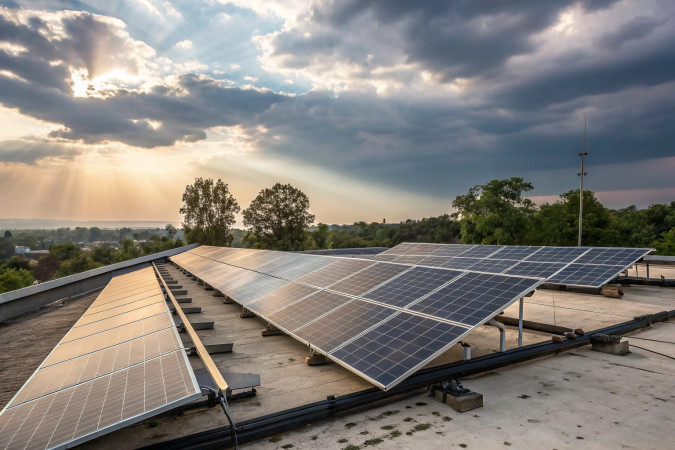
Follow India Renewable Energy News on WhatsApp for exclusive updates on clean energy news and insights
Haryana Electricity Regulatory Commission (HERC) Amends Green Energy Open Access Rules, Expands Eligibility
Mar 04, 2025
The Haryana Electricity Regulatory Commission (HERC) has introduced key amendments to its Green Energy Open Access Regulations, initially released in 2023. These changes, finalized after a public hearing, aim to provide greater flexibility for consumers while ensuring grid stability and regulatory clarity.
One of the major amendments is the modification of eligibility criteria for open access. Earlier, only consumers with a contracted demand of 100 kW or more were eligible. The updated regulations now allow consumers to qualify if their aggregated demand across multiple connections within the same electricity operation division of a distribution licensee meets or exceeds 100 kW. This expansion is expected to benefit businesses and industrial consumers with multiple smaller connections in the same region.
Another significant change concerns additional surcharges on open access power sourced from offshore wind projects. Initially, this exemption was set to expire in December 2025. The new regulations extend this benefit until December 2032, encouraging long-term investments in offshore wind energy and providing cost advantages for open access consumers sourcing electricity from these projects.
Various industry stakeholders, including Cleanmax Enviro Energy Solutions, the Distributed Solar Power Association, Hexa Sun Energy, and Haryana Vidyut Prasaran Nigam, actively participated in the consultation process. Their feedback contributed to several refinements in the regulations, including clarifications on terminology and consumer eligibility. Haryana Vidyut Prasaran Nigam recommended adjustments in wording, such as replacing “consumers” with “consumer” for consistency, which the Commission accepted to eliminate ambiguities.
A critical point of discussion was open access for consumers who are not on independent feeders. HERC has permitted such consumers to access green energy, but with the condition that they must adhere to system constraints and power cut restrictions imposed by the distribution licensee. In cases where power cuts lead to under-drawal of electricity, the affected consumers will not receive compensation.
Another key aspect addressed in the amendments is the application of imbalance charges and open access provisions for captive consumers. Stakeholders sought clarity on whether captive consumers could simultaneously avail long-term, medium-term, and short-term open access beyond their contracted demand. The Commission has acknowledged these concerns and ensured that consumers can utilize open access without unnecessary restrictions, provided they do not exceed their approved contract demand.
Additionally, HERC recently released draft regulations on the Deviation Settlement Mechanism (DSM) to maintain grid stability. This mechanism aims to enforce discipline in electricity scheduling and transactions by introducing a commercial framework for deviation settlement. With these regulatory updates, Haryana aims to promote green energy adoption while maintaining a structured and disciplined electricity market. By expanding access, providing financial incentives for offshore wind projects, and addressing consumer concerns, the amendments are expected to boost renewable energy consumption and industrial participation in the state’s green energy transition.